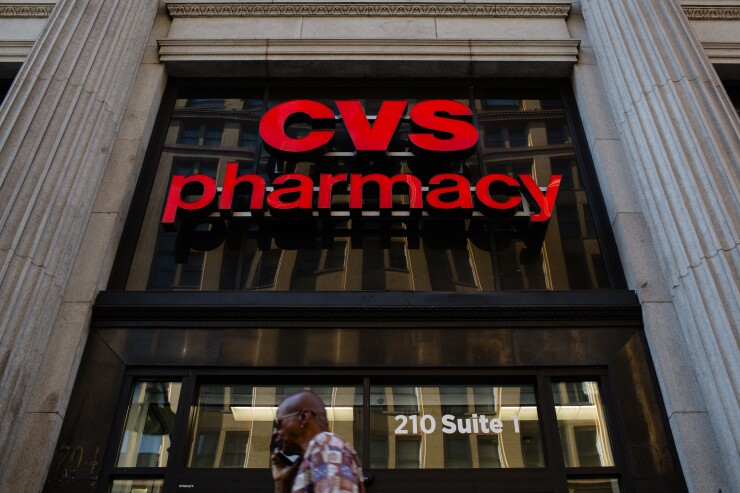Gene therapy could save and improve lives, but at $2 million per treatment, it’s out of reach for the most vulnerable of cases. CVS Health plans to make the therapy accessible through employer-sponsored insurance.
The healthcare company is leveraging its
“Gene therapy is having a very substantial impact for patients with very serious illnesses, and the results appear to be durable,” says Dr. Troy Brennan, chief medical officer for CVS Health. “That’s why it’s important to make it as affordable as possible.”
In general terms, gene therapy replaces a faulty gene with a working one to treat or prevent disease. Blindness, muscular dystrophy, leukemia and sickle cell disease are just a handful of serious illnesses gene therapy can mitigate, according to the Food and Drug Administration. Currently there’s not enough data to determine how long the effects of gene therapy will last, or if they qualify as a cure, but so far the treatment appears to be long-lasting, Brennan says.
“With prices for a single treatment as high as $2 million, many employers are struggling to find ways to offer coverage without bankrupting their health plans, or even their companies,” the CVS report says. “What’s more, these costs will hit plans — and the healthcare system — in one massive blow rather than being spread out over time.”
The CVS study estimates gene therapy could potentially cost the U.S. healthcare system an additional $66 billion — a 2% increase from the existing $3.5 trillion. While CVS is concerned health plans will decide not to cover gene therapy because of its massive price tag, part of their solution is increasing Aetna’s National Medical Excellence Program — a list of specialist health centers with high outcome levels and reasonable prices, as determined by Aetna. The Centers for Excellence program is only available to Aetna customers.
“Centers for Excellence are experts at this type of therapy, and they generally perform them at a higher volume than other institutions,” Brennan says. “It’s a way of ensuring the highest quality of care while maintaining consistent pricing.”
Two other health insurance companies are looking to help mitigate the cost of gene therapy.
Brennan says CVS Health is proposing using a value-based contract model for gene therapy. Employers and health plans would receive a partial refund if the treatment doesn’t work as expected. CVS Health would contract with gene therapy manufacturers directly to implement the model, but the healthcare company has to wait for the federal government to determine how much the therapy will cost under the Medicaid Drug Rebate Program.
“We’d like to do more value-based contracting and we’re talking to manufacturers about it, but the Medicaid price rule is holding us back,” Brennan says.
CVS Caremark, the company’s PBM branch, plans to make the cost of gene therapy more digestible by creating a payment plan that’s spread out over a few years. This way, employers and their health plans won’t have to pay for the treatment in one lump sum if a member of their workforce undergoes gene therapy.
A CVS Health spokesperson says their brand new insurance product will further protect employers and health plans by spreading the risk of covering gene therapy across a large pool of participants.
“There’s substantial cost associated with gene therapy, but [CVS Health is] making products available to reduce those costs so it’s possible for people to receive the therapy under their health insurance,” Brennan says.






